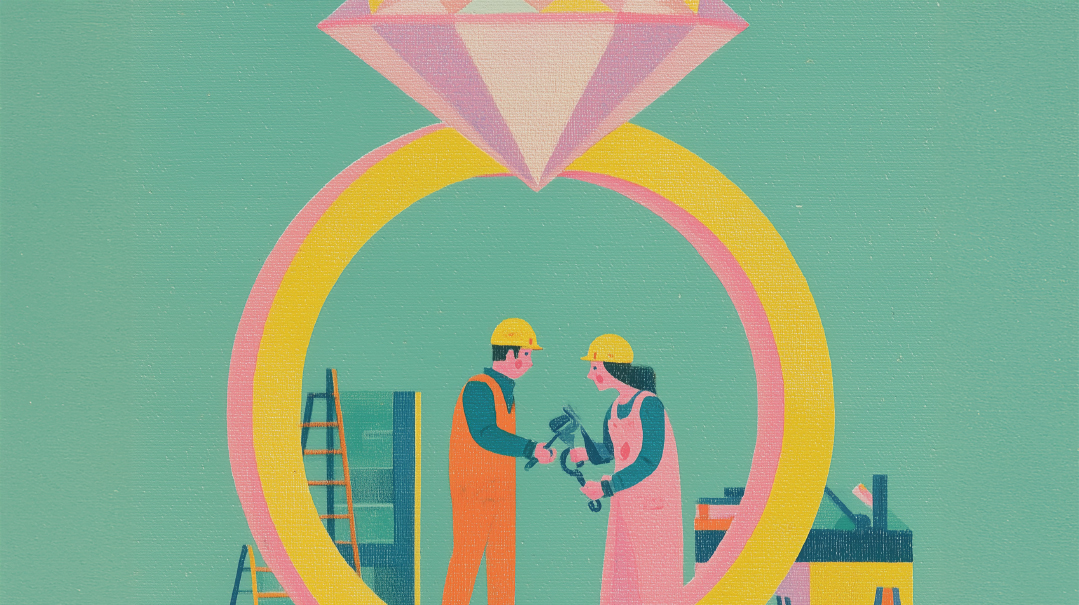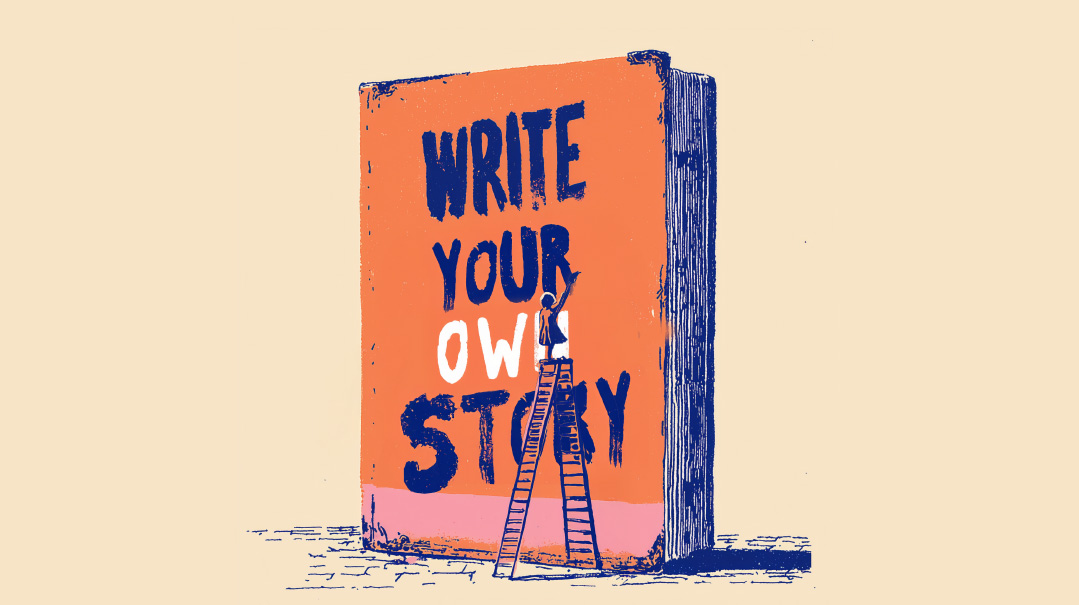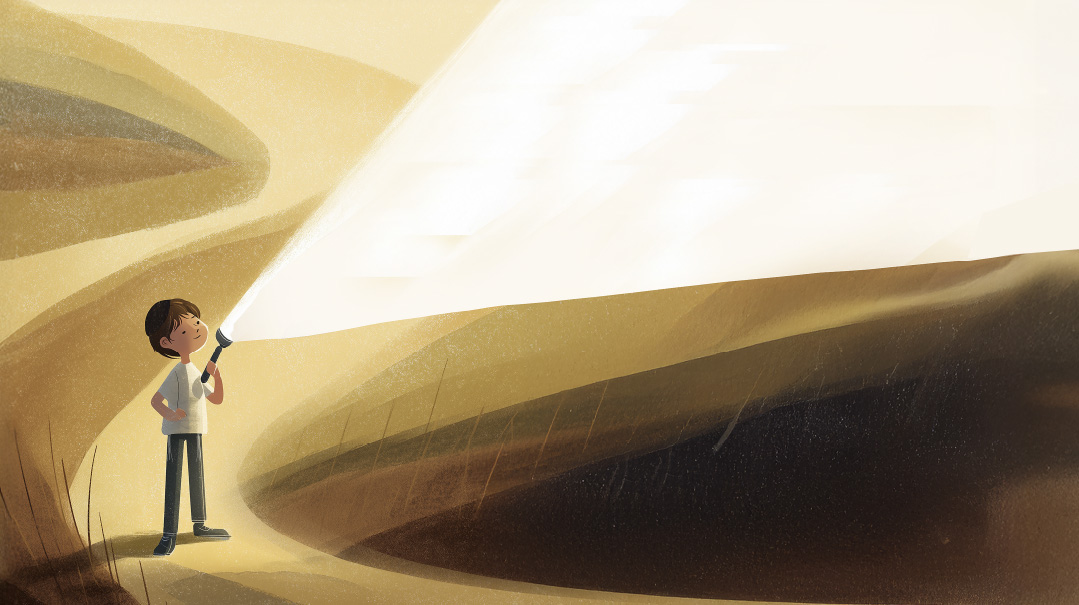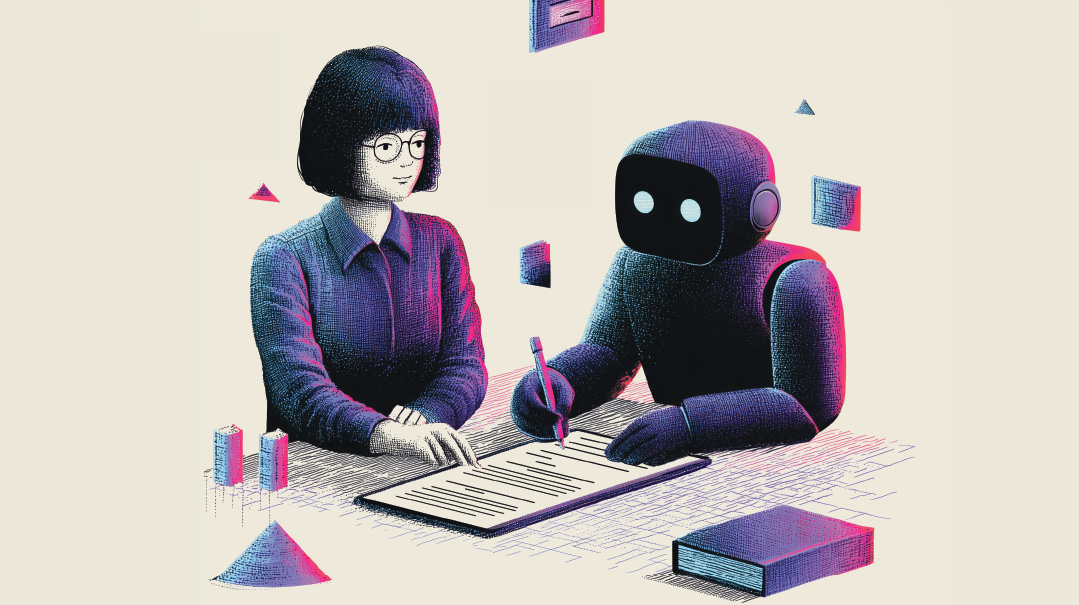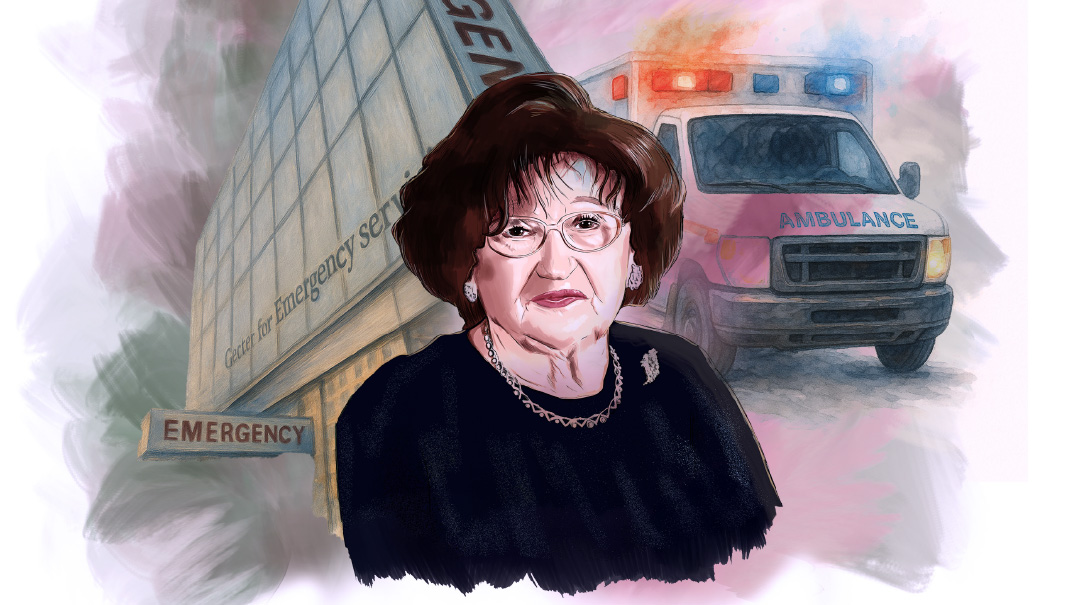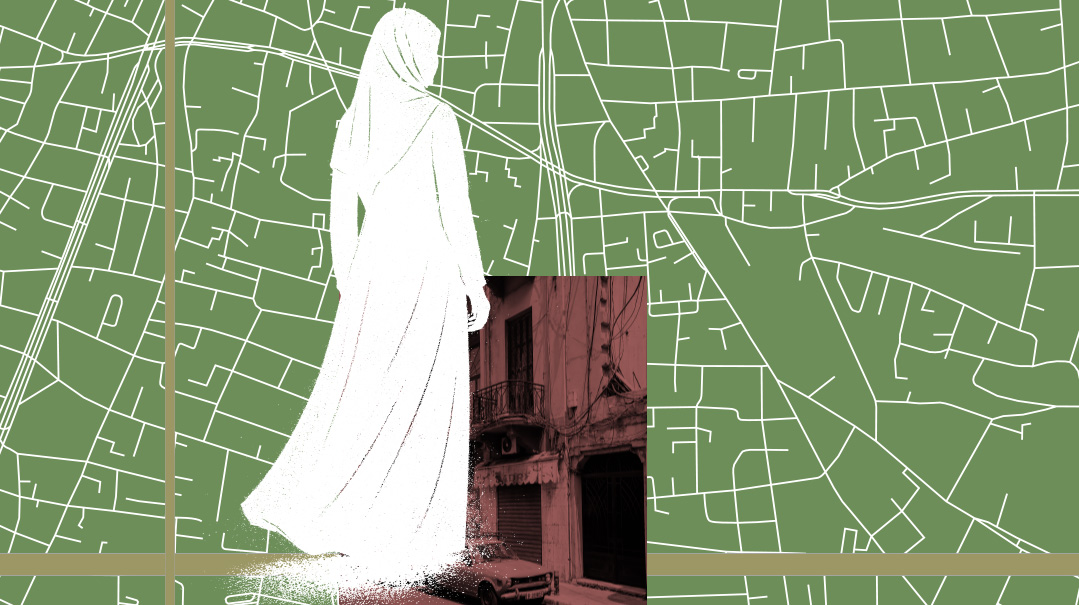Grayed Out

Food was my life — until I tasted true freedom
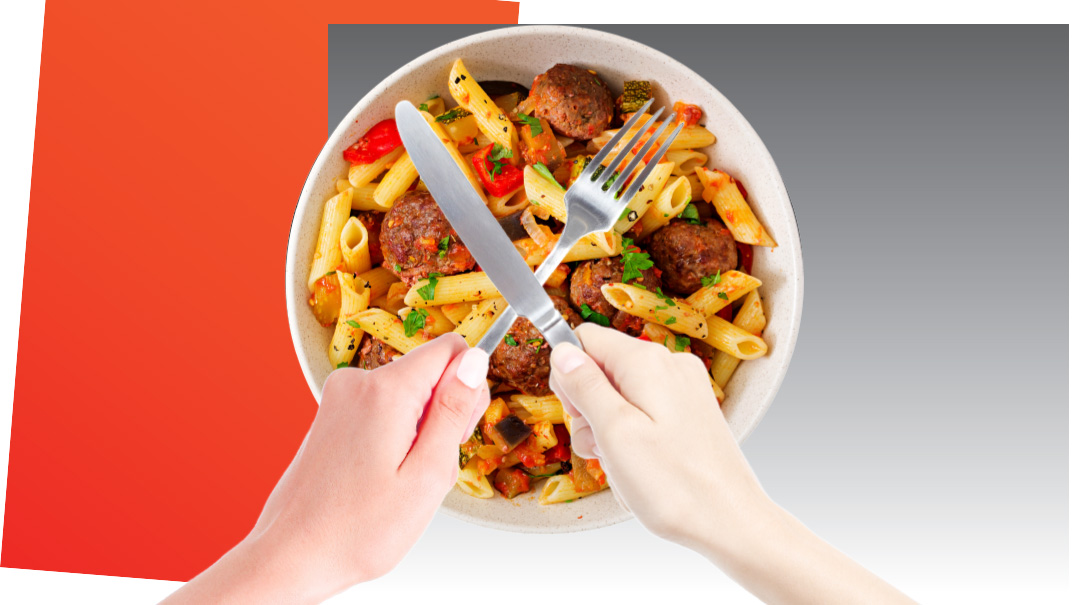
As told to Miriam Bloch
E
ver since I can remember, my world revolved around food.
In retrospect, I don’t believe it was a problem I developed or something that someone did to me. I believe it was something I was born with. My mother always told me I was never done eating; even as a baby, I’d finish my bottle and want to keep going. I never didn’t want to eat. I constantly wanted more, and it was always a Thing — every day, every meal, between meals. My whole life was about food: how much I was allowed, what were good foods, bad foods, healthy, not healthy, this is what will make me fat, these are the quantities that will make me fat.
I still ate whatever I wanted.
My early memories are obscure. But I always knew this: I was different. I had something to be ashamed of. The rule in my head was: If I was fat, I was a bad person; if I was thin, I was a good person.
As an adult, I know that these messages were never intentional, but a conglomeration of the different things I’d seen and heard and been through as a child. The way I interpreted watching those close to me being careful with their food intake, their appearances….
Looking at pictures of myself back then, I didn’t look that overweight, but it was still a Thing. In third grade, when we had to weigh ourselves for a math activity, I was the heaviest in my class. The shame haunts me to this day.
I was always offering to take in the dishes at mealtimes so I could sneak more in the kitchen, because I knew that taking seconds was something to be embarrassed about. Whenever we went on school trips, my focus was on the treats I was allowed to take along. I needed to have it all — chips, chocolate, candies — or none of the fun was worthwhile.
At around 11, my parents tried taking me to Weight Watchers, two dietitians, and then a second weight-loss program. Later, a psychotherapist who specialized in eating disorders was added to the mix. Nobody knew what to do with me. All I could do was eat and eat, and all I tried to do was stop — but I just couldn’t. I had no sense of control, inside or outside. Every day, every moment, was a losing fight; every day revolved around this complete insanity of needing to eat more.
My family doctor couldn’t help me either; neither could the pediatric dieticians or nutritionists he’d referred me to. No professional I saw was able to “fix” me. I couldn’t attain any of the goals or food plans that were drawn for me. My story was an anomaly, and no one could figure out how to help me.
My family doctor couldn’t help me either; neither could the pediatric dieticians or nutritionists he’d referred me to. No professional I saw was able to “fix” me. I couldn’t attain any of the goals or food plans that were drawn for me. My story was an anomaly, and no one could figure out how to help me.
I remember one particularly stark realization I had when I was in my early teens: I wasn’t able to sit at a Shabbos table and listen to conversation or divrei Torah without picking at food… croutons, pickles, a slice of challah, anything within reach.
In my later teen years, I had the additional growing awareness that I either ate — or I didn’t. There was no such thing as moderation. I had no idea how to moderate. Whereas most people know when they’re full, when to stop, when to take a break, I never had that feeling of fullness. Instead, I’d crave and crave food, and keep going until I’d devoured massive quantities and was physically sick, or there was nothing left to eat.
Those years are a haze in my mind. Like a camera on portrait mode, I was so focused on the one thing that the rest is a blur. I don’t remember much of my relationships and my school life, and I have very little idea today of the timeline of events in my life. I do remember, in no particular sequence, trying every single diet — the cabbage soup diet, the Cambridge diet, the Atkins diet, the Ultra-Low-Fat diet, you name it. Short of doing weight-loss surgery — I was too young, not overweight enough, and there were no underlying health conditions — I tried it all. In hindsight, I’m grateful I wasn’t eligible for the surgery, as I’m not sure I could’ve held up my eventual recovery as well with a bypass or band. But I dreamed about it and considered it.
I tried laxatives instead. I tried purging. They didn’t work, though that would’ve been my ideal scenario — to be able to eat all that food and not have the negative side effect of being fat.
I also had body dysmorphia, which means that I had little concept about my actual body size through looking at myself in the mirror. If I looked in the mirror, and I’d binged shortly before, I’d feel obese, look obese, and have this sense of being a bad person. But if I’d gone a few hours without bingeing, I’d look thin and feel great physically and emotionally.
I’d go on starvation diets, and know that the moment I picked up foods I wasn’t “allowed” to eat, there was no going back. The diet was over. Until I’d try — and fail again.
Light-bulb Moments
Those experiences would turn out to be my first introduction to myself, the catalyst for my eventual realization that I just couldn’t tolerate carbs. There’s nothing wrong with carbohydrates or sugar, of course — but they made my body go haywire.
Though I’d only come to understand it later, this was the reason none of these diets were successful. Think about, for example, the average tuna salad-baked potato dish. Whereas most people would find that a pretty satisfying, wholesome lunch, and wouldn’t need to eat for a couple of hours afterward, it would have the opposite effect on me, and I wouldn’t feel satisfied until I kept going and going and was absolutely stuffed.
One memorable day was a day I’d woken up, looked in the mirror, and said to myself, like I’d been taught to do, “You can do it, Elisheva, you’re amazing, you can do it.” Pumped with adrenaline and the tentative taste of potential success with whatever new diet I was experimenting, I weighed out my bowl of oatmeal, cut up the right amount of fruit, and added a dollop of honey. A nice healthy breakfast by anyone’s standards. Yet nobody could figure out why by nine a.m. that morning I was bingeing on carbs like I’d done every single day before this one, and on every single diet I’d ever tried. The failure I felt that morning was so severe, I forgot any sense of empowerment I’d felt earlier, and all I heard was my own disgusted voice, “You’re pathetic, you’re a loser, look in the mirror, you’re so fat, why can’t you just stick to it….”
All because I’d started the day with oatmeal.
I didn’t know it then, but I do now. Sugar and carbs are toxic to my system. When they enter my body, in any form and any quantity, they set off an uncontrollable urge to eat more and more, and the cycle is impossible to break.
I wasn’t crazy. I was sick. I had a food addiction.
But the road to acceptance and understanding was still very long in coming.
As I reached my older teen years, my struggles only intensified. I missed out on meeting up with friends, I bailed out on people — some of whom are no longer alive to make amends to, one of my most painful regrets. I was dishonest to my parents about what I ate and would make my friends promise not to tell my parents when I slipped. My friends all knew about this big ugly Thing.
I’d “call in sick” to friends’ simchahs, embarrassed by my appearance, and not trusting myself to be around food in public. I was miserable, ashamed, and angry. I had back pain, poor posture, was termed “pre-diabetic,” and my weight made it difficult for me to get around. I felt out of place everywhere I went, and never felt I could look nice.
And I was consumed with thoughts about food. The fastest ways to stuff it all in….
In this fog of misery and self-loathing, I couldn’t pick up on instructions and cues like that of a well-balanced person. I’d sit in the car with my parents and think only about food; I didn’t pay attention to where I was going. When I went abroad with my best friend and we rented a car together, I couldn’t understand how she knew where to go in a completely foreign country. I couldn’t clear the thoughts of eating out of my head to make room for other cognitive activity.
And I felt there would never be a way out.
The Road to Healing
Miracles come in many forms, and for me, getting married was one of the biggest miracles I experienced.
Marriage meant a fresh start, a balm to my fragmented spirit. For the first time ever, I was in a new environment. And for the first time ever, I met someone up-close who was completely normal around food. My husband would do as much as to start a chocolate bar and leave the rest lying around, and I’d gape at him in disbelief.
But marriage also meant new stressors, and my never-ending cycle of dieting and failing, dieting and failing, resumed with a vengeance. One particularly stressful day on which I’d received bad news, I ate an entire container of ice cream. I was as hopeless as ever before.
I’d known for a long time that there existed fellowships for people who struggled with food regulation, in various forms of severity. I’d never taken the plunge before, because I was terrified about giving up the foods I felt my emotional and physical survival depended upon. Giving up food? My brain couldn’t compute. Yet I’d hit rock bottom once again, and I knew, I finally knew, that there was only one remaining route to the other side.
So when a therapist mentioned a certain Twelve-Steps food fellowship program, I had little left to fight with.
The “Big Book” of Alcoholics Anonymous — the original “bible” of all Twelve-Step programs — talks about how recovery from alcoholism can’t start until you’re abstinent. Unlike alcohol, however, food is essential for physical survival, and various Twelve-Step food fellowships over the years — most of them spinoffs of Overeaters Anonymous — have created models for different levels of food abstinence. The specific fellowship I joined tells you to create your own definition of abstinence. This means that rather than stopping eating entirely, you choose the list of foods you will eliminate from your diet, the ones you know are your triggers.
I made my list. I took out all sugar. I took out most carbs.
And this is what happened. I didn’t touch gummy bears, I didn’t touch chips, chocolate, or cake.
Instead, I ate ten times more rice than I normally did.
If I couldn’t get my fix through sugar, I overindulged on potatoes.
I learned about addiction, I learned what the Twelve Steps involved, and their threefold recovery approach: the physical, the mental, and the spiritual. I learned about relinquishing control over what you really can’t control (which is just about everything in your life), realizing G-d (or “Higher Power,” which we call Hashem) is the One running things anyway, and letting G-d take charge, while you let go of blame, resentment, and expectation, and try to be of service to others instead of trying to manipulate everything around you, which anyway never works.
The ideas were profound and potentially life-altering, but I was working the steps “drunk” — I hadn’t really relinquished my triggers, so I couldn’t really live what I was learning. Because when you work the steps drunk, you’re set to fail.
For seven years I was in and out of different fellowships — Overeaters Anonymous, A Vision for You, and others. They were great experiences and fantastic fellowships, and I appreciate to this day that I attended, as ultimately they were what led me to the last house on the block. No diet or food plan was going to work for me though, unless it was completely carb- and grain-free —but I’d never before had the clarity to know this, or the willingness to accept it. If you have the real thing — an addiction to all sugars in any form — then no matter what kind of spiritual work you’re doing, your food plan might not work for you, and ultimately I had to admit the sad but empowering truth.
They weren’t working for me.
After leaving these fellowships, I began to daven like I’d never davened before. I was at an all-time low, feeling fed up, lethargic, frustrated, and severely let down.
“Please, Hashem,” I pleaded. “There must be another way. There has to be. Open my eyes to whatever it is that I need to find. Grant me the path to freedom. Lift me out of this black hole of hopelessness.”
Along the way, I’d heard about another Steps program called Greysheeters Anonymous Anonymous (named for the grey sheet the original food plan was printed on), but it sounded out of my league, way too scary and hardcore, and I figured it was for the few odd and eccentric individuals for whom nothing else worked. It was certainly not on my horizon; I could never commit to their restrictions, I felt, which included measuring and weighing three meals a day, eating nothing in between (although other programs have that as well), and removing all forms of sugar and carbs, including grains, high-carb vegetables, most fruits, and anything else that isn’t on the Greysheet.
One day, out of the blue, I got a call from an old friend of mine I’d lost touch with. While catching up on each other’s lives, my story came spilling out.
“Shelly,” she said, calling me by my old childhood nickname, “you know I’m part of Greysheeters. You should join, too.”
As I buried my face in my hands, I thought, No, no, no. Go away. It hasn’t come to this. I can’t believe it’s come to this.
Then, at once, goose bumps broke out all over my body as it suddenly dawned on me: Hashem, You’ve answered my tefillos.
For logistical reasons, I couldn’t start immediately, but I used the time instead to daven for the willingness to participate — or like my friend suggested, for the willingness to find the willingness to participate.
The day I joined Greysheeters Anonymous, or GSA, was the day I tasted freedom. Eerily, I felt right at home, a feeling I wished I’d had when I’d joined groups prior, but a feeling I could never access. I’d always felt out of place.
In GSA, the focus is on the newcomer, and immediately I was drowned in an outpouring of love and acceptance. The thing that hit me instantly was the sheer number of days, years, that people were “clean.” There was one woman there with 28 years of abstinence. Ten thousand individual days of three meals a day, nothing in between, and only foods on the Greysheet. This was so different from what I’d seen in my previous groups: people having abstinence, then falling, starting over again and again.
Hey, maybe I can do this, I thought.
In GSA, all you need to become a member is the willingness to stop eating the foods that set off cravings. You become “abstinent” as soon as you start eating three meals a day, nothing in between, only foods that are on the Greysheet, and you call your sponsor every day. A “sponsor,” in GSA, is anyone with 90 days or more of abstinence. Then, once abstinent, you partner with someone and start working through the Twelve Steps.
In the Big Book, drinking is compared to an allergy, which is where I realized that I too have a heightened and abnormal reaction to what, for many others, is a neutral substance — carbs. Once I start, it sets off a craving, and I can’t stop. Addiction, according to the Big Book, isn’t just physical, but mental and spiritual, too — and all of these areas need to be addressed in order to achieve true recovery.
When there’s addiction, it isn’t about mere willpower to stop or change, as the strength of the craving is beyond human control. You wouldn’t tell someone with a severe allergy to peanuts, “Just eat this one peanut, and use all your willpower to avoid a reaction.” If you’re an addict, you can’t “put the plug on the jug” and just stop, or I would’ve stopped a long, long time ago.
I’ve had to challenge my belief that I can control my eating, that I can enjoy whatever food I want if I just controlled how much and when I ate. Each time anew, my mind bought into the lie that the next time would be different. No one will know, I deserve it, and the consequences don’t matter, I’d tell myself.
The spiritual malady inherent in addiction presents with feelings of restlessness, worthlessness, self-loathing, and discontent, like you want to crawl out of your skin — a feeling that sets off yet another round of food cravings. I’m powerless over food is the refrain I’ve learned to tell myself. The only thing that will solve my addiction, I learned, is connecting to something Higher in a new way, a process commonly achieved through working the Twelve Steps (where the first steps are an admission of powerlessness over your addiction, the willingness to break old, comfortable patterns, and to let G-d lead the way).
Eight Hundred Days In
Before discovering GSA, I didn’t fully understand what was wrong with me and it was a painful, lonely ride, but I’ve subsequently met frum women from all over the world who’ve walked this path before me, who’ve shown me that it can be done, that frum life doesn’t have to mean bingeing myself into the grave. (While GSA has worked for me, there are other programs that have adopted the strictures of GSA, and there’s even a Torah-based, “13-Step” program out there.) My addiction stole my life, and I hate to think where I’d be if I’d continued living in that fog where the only thing that mattered was food.
Yes, the beginning was difficult. I was hungry a lot of the time and found myself intensely wishing for foods I’d eaten liberally before. Yet I was determined to become like the others in my group. I was doing this, and I was going to do it right. “I’m not bad trying to get good,” I told myself, “I’m sick, trying to get better.”
Now, I weigh and measure my three meals a day, with the guidance of my sponsor. The amounts will change based on factors such as pregnancy, breastfeeding, maintenance, or G-d forbid, illness. I eat nothing in between meals, and nothing that isn’t on the list. I’m part of a frum recipes group and have so much fun experimenting in the kitchen. The Greysheet is stuck inside my kitchen cabinets. If I’m ever unsure or having a hard day, I call my sponsor or someone else with 90 days’ abstinence. I don’t make any food decisions on my own — it’s like the cat guarding the milk. I feel loved, accepted, and supported, and that, for the most part, overrides my cravings.
An emotional moment came during my first year in GSA. I was pregnant, and because I’d had gestational diabetes in previous pregnancies, I was medically required to take a glucose test. A few months prior, when I’d started on the Greysheet plan, I thought I’d said goodbye to sugar forever, and until that point I had been successful. It felt so scary to be forced to drink a bottle of sugar, and I cried to Hashem to help me get through this, to not make me lose my abstinence over it. I didn’t, although for two weeks afterward, I was tense and uptight, and craved foods more strongly than I had in a while, due to all that sugar in my system. At the time, I didn’t connect it, but later I learned it was due to the sugar in my system.
Another time I’d forgotten to check the ingredients in a certain spice mix that I’d begun to sprinkle liberally on a lot of my foods. Unbeknownst to me at the time, the spice had sugar listed as the second ingredient. It took a week of intense craving and multiple conversations with my sponsor, to think to check the ingredients. What a shock I had when I discovered the sugar.
My kids know that I need to stay away from sugar, even though they’re too little to understand, and do all the explaining for me. Once, I was out with friends and their little girl asked my son why I wasn’t eating.
“Mommy’s allergic to a lot of things,” my son explained, “so she brings her own food because it’s a whole lot easier.” And I didn’t have to say a thing.
Now, 800 days in, I’m unrecognizable, mostly to myself. Knowledge is power, and for me, understanding the workings of my addiction alongside the support of my fellowship has given me more than power. It’s given me freedom.
Whereas before it was all about stuffing it in as fast as I could so no one could see, I now thoroughly enjoy preparing and eating my meals. I get my blood checked periodically and I’m healthier now than I’ve ever been. My journey is an unusual one — most people do not need such extreme or restrictive diets, and no one should attempt one without consulting with health professionals and their physician. But in my case, when nothing else could help me — this particular fellowship was transformational.
Now, in place of deprivation and despair, I feel gratitude. Today, I’m present with myself, present with my husband, my children, my friends, and most of all, present with Hashem.
When my eating falls into place, everything else falls into place.
When I put my food on the small scale, I surrender and ask Hashem to take care of the Big Scale.
Miriam Bloch is a psychotherapist and writer based in London, UK
Research has found that foods that are high in sugar can boost the brain’s reward system. This can, in some cases, override the brain’s natural ability to know when to stop eating, despite consequences such as extreme weight gain and severe health risks.
When a person can’t rely on their willpower to stop bingeing, despite the debilitating effect it has on their life, it’s possible food addiction may be at play.
Food addiction, like alcohol and drug addictions, involves intense cravings, the inability to cut down on consumption, and signs of withdrawal. In one study, those who scored high on the food addiction scale reported needing to eat more and more food to achieve the same emotional effect. For these people, it’s difficult to think about anything other than food, to the point of their familial, social, and professional lives being affected.
When addiction is at play, treating excessive weight gain must take a different form. Because food stimulates the reward center in the brain, professionals believe it must be treated in the same way as any other addiction. They also believe that lifestyle changes and even gastric bypass surgery will have minimal effect unless the underlying addiction is addressed.
Credits: Harvard Health Online; PsychGuides.com
Waking Up to Day One
By Deborah Perlstein
My close friend Raizy and I were partners in crime — the crime of killing ourselves with food. We’d go out together to those all-you-can-eat restaurants and pack away enough fries, pita and chummus for an army. She’d come over Shabbos afternoon and together the two of us would polish off a tray of brownies, a family-sized bag of potato chips, a bag of toffees, and a container of pareve ice cream — all washed down with a Diet Coke.
For those of you who are not compulsive overeaters, this probably sounds pretty gross — who can ingest so much? But for those of us whose feel-full mechanisms are out of whack (along with our ability to handle painful emotions), that’s how we are — always hungry, always needing to fill up, never allowing hunger pangs to get the better of us, using food to soothe all our troubles.
When we were both about 100 pounds overweight, we knew it was time for desperate measures, and we joined a women’s-only 12-step program for overeaters. As many people know, the First Step is to admit powerlessness over your addiction, that your life has become unmanageable because of it. What that means is that all the willpower in the world is no match for your craving, and that even though you might be pulled-together and high-functioning on the outside, inside your addiction is making you into a mess. Because every addict at some point winds up facing the helplessness, misery, shame, isolation, secrecy, ruined relationships, spiritual distance, and unfulfilled potential. (My personal rock bottom? It was on Simchas Torah morning and while my family was in shul for hakafos, I was busy munching away in the quiet of my kitchen — until one of my boys rushed in and said, “Mommy, where were you!? You just missed all of us under the tallis at kol hane’arim!”)
Could I do it? Could I make a decision to pull myself out of the morass I’d created, a morass that felt so comfortable, dependable and reliable? Raizy was gung-ho. She pulled out of the gate in a sprint. After all, the program offered a great diet as well. “It’s amazing!” she told me. “Can you imagine, we’ll never eat cake again?!” I was devastated. While she was busy chopping her vegetables, I was stuck in the overwhelmingness of “forever.” The idea of forever made me want to crawl under a rock, to go to bed and burrow back into my covers. (PS “Forever” was also too big for Raizy — she quit after a month, and never went back.)
The first time I saw what four ounces of chicken or half a cup of brown rice actually looked like, I thought I’d faint; these were starvation rations and I’d obviously wither away and drop dead — if not today, then surely by next week. But then, with the help of a loving and spiritually-attuned sponsor, I started to get it. Nothing is forever, she said. Just take it one day at a time. Don’t obsess about tomorrow. That’s way too big.
What I learned is that on my own, I couldn’t control my addiction (or anything else in my life), but there is Someone who can. I can turn to Hashem! I learned that my relationship with Hashem is the key to my recovery, and that it’s up to me to make the decision to trust in Him as a replacement for my shaky foundation of self-will and control. I learned about choice — that while I can’t control anything or anyone around me, I can be accountable for the way I choose to respond, breaking the self-destructive cycle of self-pity, rationalization, blame, and denial.
That really sounds heavy, when all we’re talking about is food, no? But this is the point: I didn’t die — not after Day One and not after 13 years of Day Ones. Because today I know that whatever Hashem puts on my plate is enough for me, and whatever He puts on “my plate” is also enough for me. It’s exactly what I need. I’ve learned that whatever anyone else has is their portion, not mine. I’ve learned that as painful as life is, as wrenching as rejection and disappointment feels, I’m always and unconditionally embraced and beloved by Hashem, and don’t have to fill myself with cake and chocolate to feel full (my stomach and heart are pretty close together, so it’s not always easy to tell which one is empty).
I don’t think about another decade without cake. Or even about how I’ll get through Yom Tov without a donut. Today when I woke up and said Modeh Ani, I knew I wanted, just for today, to stay plugged in. Not to slide back down into that black hole of guilt, shame, and hopelessness, and wonder if I’d ever be able to claw my way out again.
Just for today, I’m going for light and hope and connection.
The writer can be contacted through Mishpacha
(Originally featured in Family First, Issue 858)
Oops! We could not locate your form.

